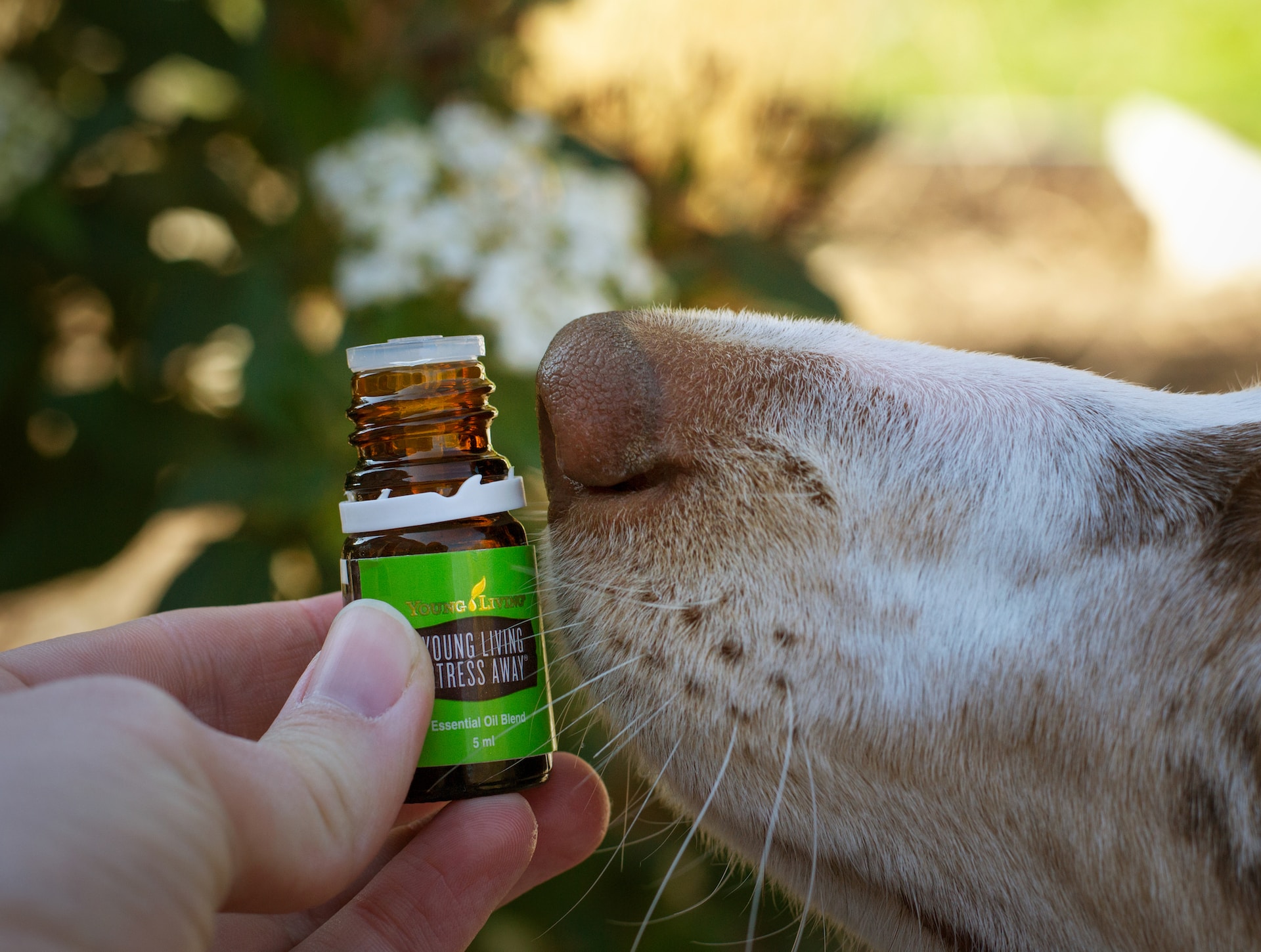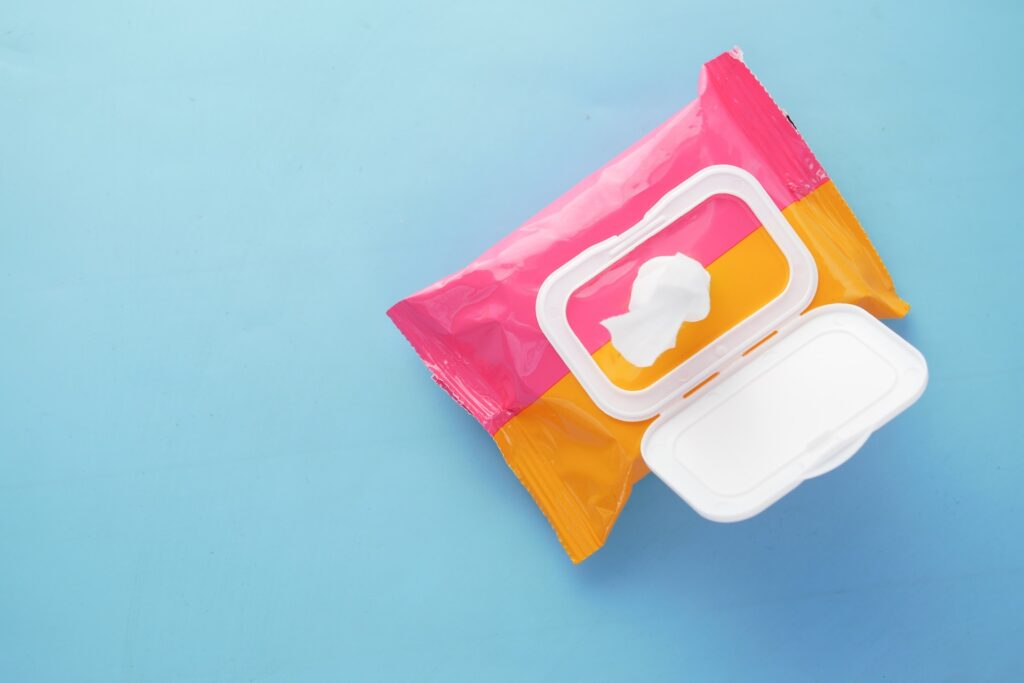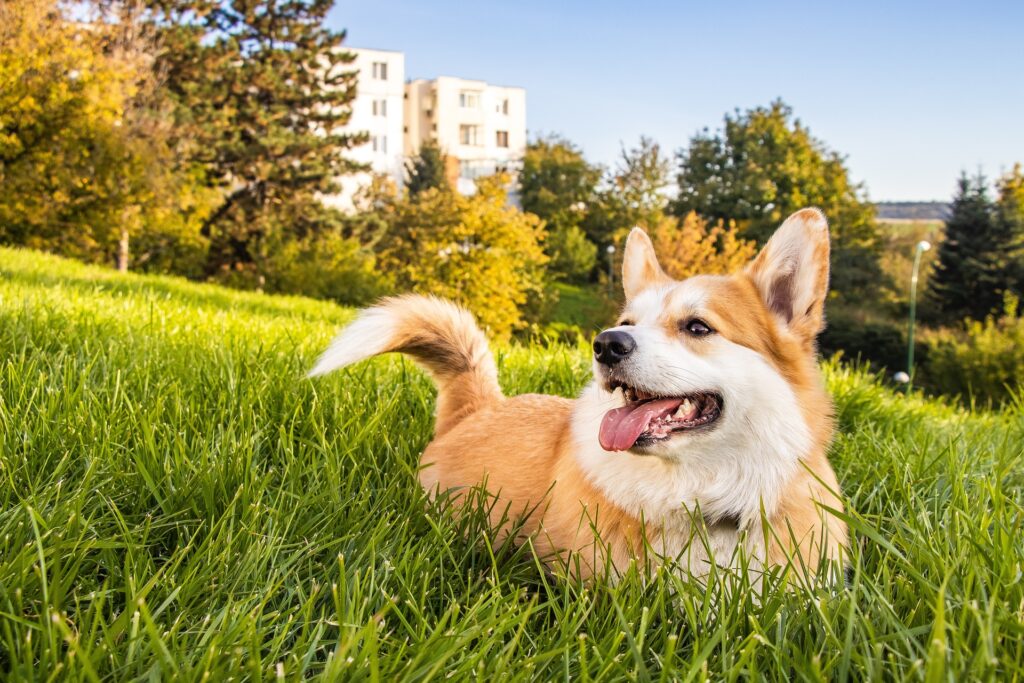Aromatherapy has been gaining popularity in the last few years. And some people like using it around their dogs. One common thing people use is patchouli oil. But is patchouli safe for dogs or should you not use it around them?
Patchouli is not safe for dogs. Its essential oil can be toxic, causing adverse reactions like skin irritation, vomiting, or even more severe issues. If you are set on using it for dogs, it’s crucial to explore dog-friendly alternatives for aromatherapy.
- What is patchouli oil and what is it made of?
- What are the main concerns surrounding the use of this oil on dogs?
- What are the potential benefits of aromatherapy for dogs?
- How should this essential oil be used safely and responsibly around dogs?
- What to do if your dog eats patchouli oil?
- What are some alternative essential oils that are generally safe for dogs?
What is patchouli oil and what is it made of?
Patchouli oil is derived from the leaves of the Patchouli plant (Pogostemon cablin), which is native to Southeast Asia. The leaves are dried and distilled to create an essential oil. Encyclopedia Britannica explains this oil’s functions as:
| Patchouli essential oil has pleasing musky notes that augment other fragrances and has strong fixative properties. It is also used in aromatherapy and as a common fragrance for incense and candles. In traditional medicine, the oil is sometimes used topically to treat fungal skin infections, dandruff, and eczema and is used in baths for rheumatism. The leaves can be made into an herbal tea for a variety of digestive ailments and are used as a moth repellent for clothing. |
What are the main concerns surrounding the use of this oil on dogs?
Using patchouli around dogs may not be safe due to a few concerns. Using it for a short time might not cause any serious problems. However, not using safety measures will result in health problems manifesting in your dog.
Allergies
For one, there are some dogs that can be highly allergic to this essential oil. If they are prone to allergies, they will develop symptoms shortly after being in contact with the allergen. Allergies in dogs can manifest in different ways.
Usually, a rash and itching appear as the first symptoms. Then, nausea and vomiting can follow. Your dog may find itself in a situation where it can not breathe anymore and even pass out.
Confusion
Some dogs will become dazed and confused when in contact with this oil. There are situations where dogs will leave odorless wet spots unintentionally. This is due to the loss of control over the urinary system resulting in incontinence.
Then, some dogs can develop respiratory problems when in contact with the steam of this essential oil. If a dog starts sneezing and wheezing whenever you turn on your diffuser, it might be reacting to it.
What are the potential benefits of aromatherapy for dogs?
Even though it can cause problems for some dogs, there are a few dog-friendly patchouli uses you should know about. Dogs can benefit in the same way humans do from this wondrous plant.
Patchouli oil has anti-inflammatory properties. If smeared as a topical oil on your pet’s inflamed skin, it may help reduce the redness and swelling. “Patchouli and tea tree oils can be good alternatives for treating severe cases of pyoderma in dogs, especially when dealing with multidrug-resistant strains. “, say Dr. Małgorzata Anna Szewczuk et al. in their study. It is also believed to renew collagen and have anti-aging effects.
This oil has similar effects to using valerian root for dogs. It helps with reducing stress and anxiety in dogs. This can be beneficial to use during thunderstorms or loud noises that scare dogs. It can also work great for dogs that suffer from separation anxiety.
How should this essential oil be used safely and responsibly around dogs?
If you decide to use it around your dog, you must know how to use it and avoid any adverse effects. Always dilute the oil properly before using it on or around your pet. The general rule is to use a very low concentration, around 0.1% to 1%, in a carrier oil like coconut or jojoba oil.
Higher concentrations can cause serious side effects. The severity of the effects will depend on the size and breed of the dog. Larger dogs seem to have a higher tolerance than dogs that are of a smaller size.
Patchouli oil is toxic to dogs if used in a non-ventilated room. Make sure you use the diffuser for around 15 minutes before letting the dog out for fresh air.
Never add the oil to the dog’s water or food. Ingestion of it might lead to poisoning and death. This is due to the fact that some of these essential oils contain additional chemicals.
What to do if your dog eats patchouli oil?
There may be a moment when your dog doesn’t listen to you and accidentally ingests some of your essential oil. In this case, you should remain calm and watch for any signs of patchouli oil toxicity in dogs. Take the oil away from your dog and try to determine how much it ingested.
Symptoms may start instantly or in the next few hours. But you should not wait. Instead, call your veterinarian and ask for advice. Try to give them as much information as possible about the situation. Sometimes, they will ask you to bring your dog to their office. Besides the vet, the Pet Poison helpline service can also be of help to you.
What are some alternative essential oils that are generally safe for dogs?
Considering the potential risks associated with this oil, you might be curious about some other natural remedies for dogs you can try.
Essential oils like lavender, chamomile, and frankincense are all great options for dogs. They can also offer anti-inflammatory and calming effects for both dogs and humans. These oils can be used in calming diffusers, diluted for massage, or applied to collars to provide a soothing and pleasant experience for your pet. They are also great natural fragrances.
Always remember that every dog is unique, and their reactions to essential oils may vary. It’s crucial to observe your pet’s behavior and any changes closely when introducing any new essential oils.
There are also some benefits you can get from feeding regular food. For example, pumpkin helps dogs with diarrhea. And bone broth is excellent for maintaining joint health. So consider adding these dishes to the everyday diet of your dog.

So is patchouli safe for dogs?
While the essential oil has its benefits for humans, it’s best to exercise caution and avoid using it on or around dogs. It is known to have a calming and anti-inflammatory effect and helps with stress and skin conditions. However, it can also poison dogs or cause serious respiratory and allergic reactions.
Luckily, there are safer alternative essential oils that can offer similar benefits without the potential risks. If you are adamant about using this oil though, you can still do it if you respect certain rules. Using low concentrations and proper ventilation is good for starters.
Always consult with a veterinarian before introducing any essential oil to your pet’s routine, and prioritize your pet’s safety and well-being above all else.
FAQ
Is patchouli oil safe for cats?
No, just like dogs, cats can also be harmed if they get in contact with this essential oil. Because they are smaller than dogs, cats can suffer problems even with smaller concentrations.
Are scented candles bad for dogs?
Yes, some scented candles release harmful chemicals when burned. These fumes can irritate a dog’s respiratory system and cause breathing difficulties. Dogs may also try to ingest the candle and burn themselves in the process.
Is incense safe around dogs?
Incense, just like scented candles and essential oils, can be harmful to dogs if not used properly. It causes the same respiratory problems and poses ingestion risks for dogs and owners that are not equipped to use caution.
Is patchouli oil safe for puppies?
Patchouli is not safe for dogs, but it is even worse for puppies. Due to their smaller size and undeveloped body, little pups can suffer from worse problems than their older counterparts.
Can you use patchouli for fleas and ticks?
You can technically use this natural essential oil to repel pests like ticks and fleas. Do this by mixing a drop of the oil with 20 ml of water. Then drop a bit on the dog’s blanket or bedding.
More dog health resources
Here are a few other resources talking about dog health.
- Pink spot on dogs lip
- Why do dog leave odorless wet spots
- Dog ate chalk
- Dog ate baby wipe
- Why are my dogs balls black
You can find a lot more information on the types of food you can feed your dog on our site Dogisa!
What To Do If Your Dog Ate A Baby Wipe: Advice And Solutions
Dogs like to chew on things and sometimes they will get their chompers on something…
Why do Dog Leave Odorless Wet Spots? And how to treat them
It is not uncommon for dog owners to notice that their dog leave odorless wet…
Why Does My Dog Only Have Diarrhea At Night? [How To Help]
Diarrhea is not an uncommon thing and most dogs will suffer from it at least…
A Complete Guide To The Corgi Heat Cycle [+ Tips]
Going into heat is what we refer to when we talk about periods in dogs….
Should I Feed My Dog Before Or After A Walk? [Simplified]
Of what we know of dogs, they love two things, eating and walking. These two…
Dog Ate Tampon – How Long Will It Take To Pass Easily?
Dogs are curious creatures by nature, and it’s no wonder that they scout for inedible…








